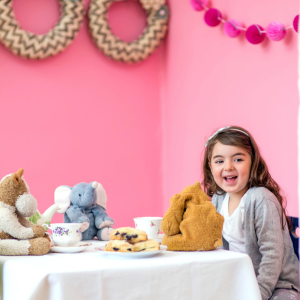Picture this: your toddler happily lost in their own little world of imagination, giggles filling the room as they embark on adventures with their toys. You, as caretakers getting a break from keeping your toddler engaged all day and maybe, just maybe, you can have that warm cup of coffee you have been longing for all day.

Independent play is a magical journey that benefits both toddlers and parents alike.
For toddlers, it serves as a gateway to creativity and imagination, allowing them to explore their interests freely and build essential problem-solving skills. It fosters self-reliance, confidence, and language development, empowering them to navigate the world with curiosity and enthusiasm.
Simultaneously, independent play provides parents with valuable moments of respite, promoting a sense of balance in their daily routines. Witnessing their child's growth and happiness during these play sessions brings joy and fulfillment to parents, making independent play a win-win for all.
Why is Independent Play Important?
Let me tell you, independent play is like a secret recipe for your child's development. Here are a few reasons why it's so important:

Unleashes Creativity and Imagination: Independent play is the perfect stage for your little one's creativity to flourish. When they're in charge, their imagination takes flight! They can transform a cardboard box into a spaceship or create a magical tea party with their stuffed animals. It's incredible to witness the innovative and unique ideas that sprout from their creative minds.

Builds Problem-Solving Skills: Remember the joy of solving a puzzle or finding your way out of a maze? Well, independent play gives toddlers the chance to face challenges and solve problems on their own. From building blocks to shape sorters, these activities sharpen their problem-solving skills and teach them that perseverance pays off.

Encourages Self-Reliance and Confidence: Independent play is like a confidence-boosting gym for your little one's self-reliance muscles. As they learn to entertain themselves, make decisions, and solve problems, they gain a sense of independence and confidence in their abilities. Plus, this newfound confidence spills over into other areas of their lives!

Supercharges Language and Communication Skills: Did you know that independent play can also enhance your toddler's language and communication skills? When they engage in imaginative play, they talk to themselves, their toys, and even imaginary friends. These conversations nurture their language development, vocabulary, and communication abilities. It's like they have their own little language laboratory!
How Can Parents Achieve Independent Play?
Alright, let's get to the good stuff! Here are some friendly and practical tips to encourage independent play in your toddler's life:
Create a Play-Friendly Environment: Designate a specific play area in your home where your child can freely explore and engage in independent play. Organize toys and materials in accessible bins or shelves, making it easy for them to choose what interests them.
Offer Open-Ended Toys: Provide toys that inspire creativity and imagination, such as building blocks, play dough, art supplies, dolls, or action figures. Open-ended toys allow for endless possibilities and encourage your child to take the lead in their playtime adventures.
Establish a Daily Routine: Incorporate independent play into your child's daily routine. Set aside dedicated time for it, whether it's in the morning, after lunch, or before bedtime. Consistency helps your child anticipate and look forward to their playtime.
Be a Supportive Observer: While your child is engaged in independent play, be nearby to offer encouragement and support. Resist the urge to intervene or direct their play. Instead, observe and appreciate their creativity, problem-solving, and exploration.
Foster Curiosity and Exploration: Encourage your child to explore and discover new things during playtime. Offer books, puzzles, or age-appropriate games that pique their curiosity and challenge their minds.
Limit Screen Time: Reducing screen time can create more opportunities for independent play. Encourage alternative activities that promote hands-on exploration and imaginative play.
Embrace Messy Play: Messy play, like sensory activities with sand, water, or finger paints, can be incredibly stimulating for young children. Embrace the mess (within reason) and watch them dive into creative and sensory-filled play.
Set Realistic Expectations: Keep in mind that independent play is a skill that develops over time. Start with short periods and gradually increase as your child becomes more comfortable with it.
Provide Pretend Play Props: Offer props and costumes for pretend play, like dress-up clothes, play kitchen items, or a doctor's kit. Pretend play allows children to immerse themselves in different roles and scenarios.
Respect Their Choices: Support your child's autonomy by respecting their choices during play. Let them decide what activities they want to engage in and how they want to explore.
Play Together Sometimes: While the goal is to encourage independent play, it's also essential to have quality playtime together. Participate in play when your child invites you or shows interest in shared activities. This strengthens your bond and nurtures their social skills.
Celebrate Their Achievements: Praise your child for their efforts and accomplishments during independent play. Celebrate their creativity, problem-solving, and persistence. Positive reinforcement encourages them to continue exploring and learning independently.c
So, dear parents, it's time to unleash the power of independent play in your toddler's life! Encourage their imagination, foster problem-solving skills, and watch their self-confidence soar. Remember, it's not about leaving them alone—it's about empowering them to explore, create, and learn independently. So grab those toys, sprinkle a bit of imagination, and let the adventures begin. Your little one is about to embark on a magical journey of independent play!

Hozzászólások